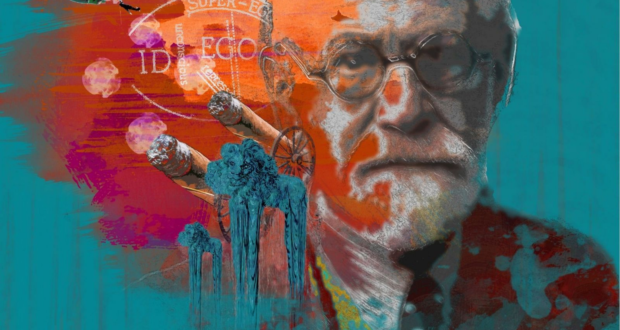First performed over a decade ago Off-Broadway, Mark St. Germain’s Freud’s Last Session enjoys its first UK run at the King’s Head Theatre.Summary
Rating
Excellent
The titular Freud is Sigmund, the year is 1939, the day is the first of September, the afternoon World War Two is declared. The last session is Freud’s meeting with the author CS Lewis. Understandably, there’s not much in the way of lions, witches, wardrobes or couches in St. Germain’s imaginary meeting.
The play requires little in-depth knowledge of the life and works of the moral and theological philosophy of the 20th Century or of the specific work of this great pair. Germain’s skill as a writer sensitively introduces a great sense of the ground on which they both spent their careers stomping out and how they have affected our interpretations of the world around us today without descending into lecture. In fact, these characters, who many may condemn as humourless and dry in real life, are even quite funny here.
Freud, in the last days of his life, is compelled to meet a nervous Lewis to examine his recent damascene conversion (watered down by Lewis who confesses he was not struck by lightning, but a thought in the sidecar of a motorcycle on the way to the zoo) from pragmatic atheist to devout Anglican. They meet initially to discuss the comfort of Milton’s Paradise Lost, but quickly the play turns to a rather entertaining dialectic between a devout atheist and a blind believer.
Through an excellently varied and convincing performance from Julian Bird (who, in preparation for the role has practiced as a psychiatrist for 34 years), we see clearly that Freud is not seeking an answer to the question of God but is looking for some comfort as he lives out his last days in tremendous pain.
To Freud’s frustration, Séan Browne as Lewis provides no tangible comfort and gives very little back but dogma as the two clash, but after a false alarm air raid and a disturbing emergency palatectomy he worries for Freud, not as a non-believer but as an old man. They depart with no answer but a sense of common bond, their developed humanity a thread between two poles.
Just as this play exhibits elements of reality, grounded firmly in fantasy, Freud’s studio is familiar at a squint and translated here by Brad Caleb Lee. Lee has designed a charming surrealist carpet of telephones, long-legged lions and cigar cannons to sit Freud’s famous couch and writing desk. This gives adequate playing space for director Peter Darney, who has done a very good job at bringing to life an afternoon between scholars in peace-time.
Bird’s performance of Freud as a great mind but a man in a sick body is a masterful work in sincerity and warmth of character (and as a scared, old curmudgeon). In reality, Lewis outlived Freud by over 20 years, allowing him to have the last say on the matters that were never really discussed. Freud’s Last Session gives him the last word and would put him on equal footing with Lewis, but through Bird’s performance, he wins out in the end.
Written by: Mark St. Germain
Directed by: Peter Darney
Design by: Brad Caleb Lee
Lighting design by: Clare O’Donoghue
Composer/Sound design by: Sam Glossop
Freud’s Last Session plays at King’s Head Theatre until 12 February. Further information and booking via the below link.
 Everything Theatre Reviews, interviews and news for theatre lovers, London and beyond
Everything Theatre Reviews, interviews and news for theatre lovers, London and beyond



